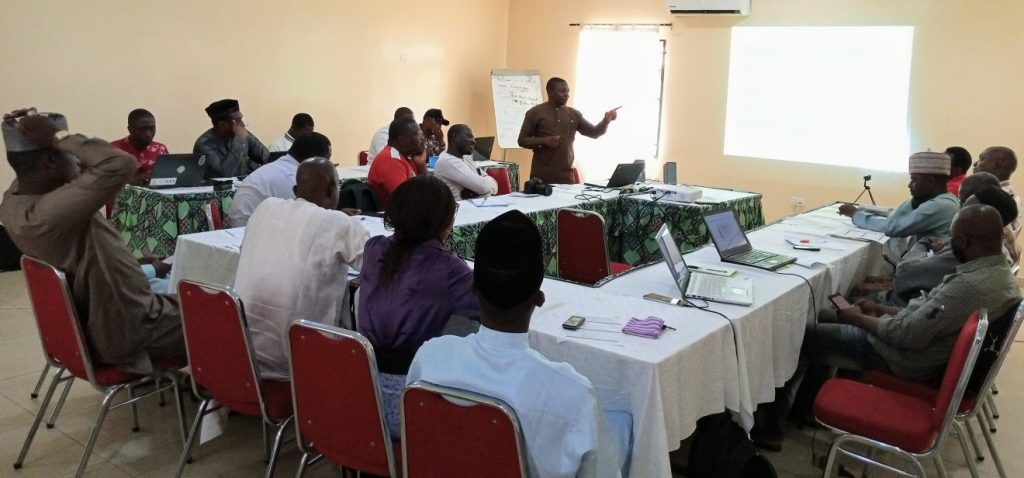
The Partnership to Engage, Reform and Learn (PERL) on Thursday, engaged journalists in Kaduna State on constitution amendment bills.
The engagement was to mobilise support for the ratification of Constitutional Amendment Bills before the State Assembly.
Mr Abel Adejor, State Team Facilitator, PERL, a United Kingdom-funded governance programme, said at the opening of the engagement in Kaduna, that the media has a critical role to play in mobilising the needed support.
Adejor described the media as a “critical stakeholder” in PERL’s engagements because of their huge influence in information dissemination.
He said that the media also served as a bridge between the government and the citizens.
Adejor said that the media would be expected to use their various platforms to engage critical stakeholders and mobilise popular support for the ratification of the Constitutional Amendment Bills before the state assemblies.
According to him, the constitution is the most important document that guides the roles and function of the executive, legislature, and the judiciary as well as all the tiers of government.
“This engagement will broaden the knowledge of media practitioners on the importance of the constitutional review, the proposed amendments and how they can play their quota to ensure ratification by the Kaduna State Assembly.
“This is critical because the ratification of 24 states, representing two-third of the 36 states and the Federal Capital Territory is required for the autonomy to become a reality.”
Mr Istifanus Akau, State Partnership Facilitator, PERL, said that the meeting was for the media to develop strategies for effective engagement of members of the House of Assembly to ratify the bills.
Akau added that the media would also be engaging policy makers and other critical stakeholders to influence the ratification of the Bills transmitted to the Kaduna State House of Assembly.
“Another objective is to increase understanding on the functionality of the local government systems through financial and administrative autonomy,” he said.
He said that the 9th National Assembly had passed majority of the bills on priority issues canvassed by PERL and its partners in the ongoing constitution review process.
He said that a total of 68 bills were presented and considered by the National Assembly, of which 44, representing 65 per cent were passed.
He added that two others were passed with some amendments, while 22, representing 32 per cent did not scale through.
“Two of the critical bills passed are the Local Government Administrative and Financial Autonomy Bills which seeks to create standard tenure for local government administrators, abolish Caretaker Committees
“The Bills also abolished the Joint Allocation Account and made provision for direct allocation to local government councils.
“Another important bill is the Legislature and Legislative Bureaucracy Bill, to recognize the status of State Assembly Legislative Service Commission, for the implementation of State Assemblies financial autonomy.
“Other bills are Institutional Strengthening Bill, Establishment of State Security Council Bill, and timeframe for the submission and passage of the federal and state budget to enhance budget performance among others,” he said.
Mr Yusuf Goje of the Coalition of Associations for Leadership, Peace, Empowerment and Development, noted that strong institutions were needed for any democracy to work effectively.
According to him, Local Government Administrative and Financial Autonomy are very critical in improving service delivery at the local government level.
He added that the local government autonomy bills, along with others before the State Assemblies, were to strengthen the institutions of governance through a legal framework. (NAN)



